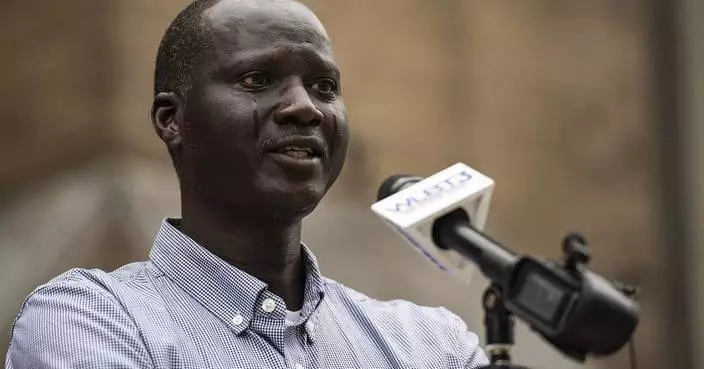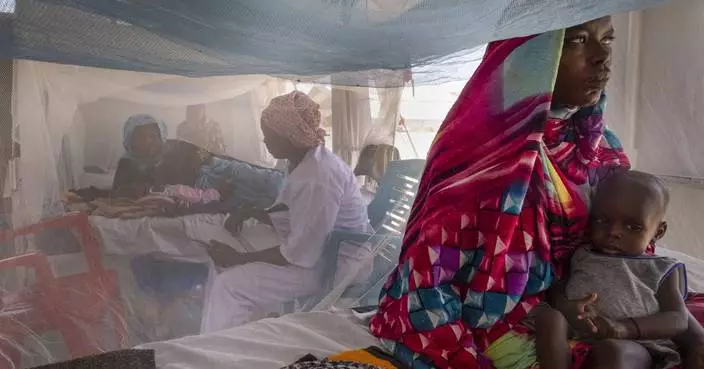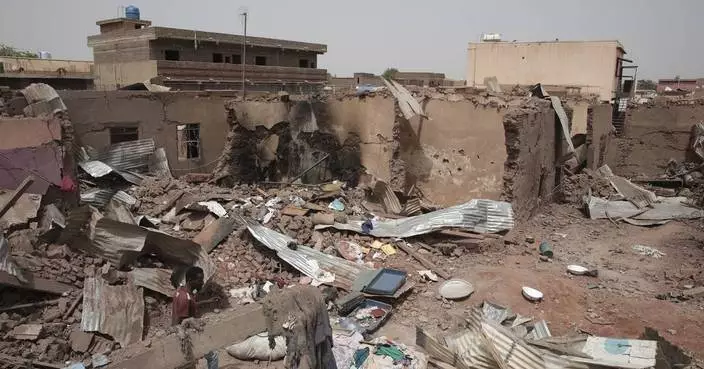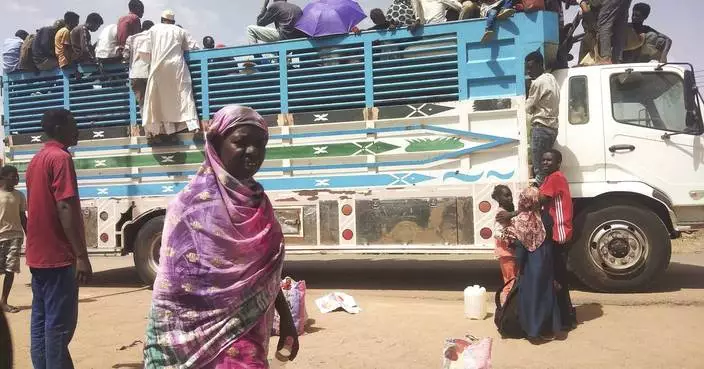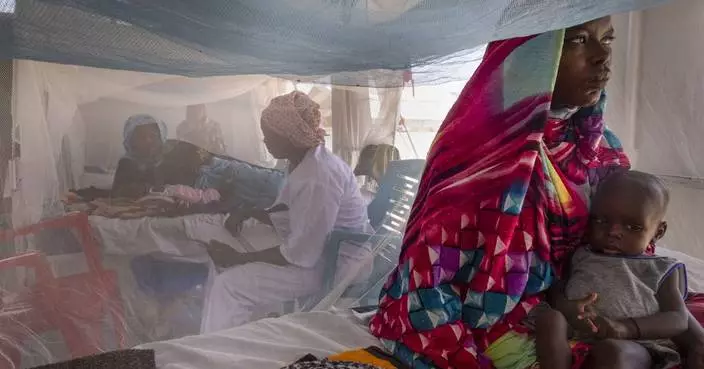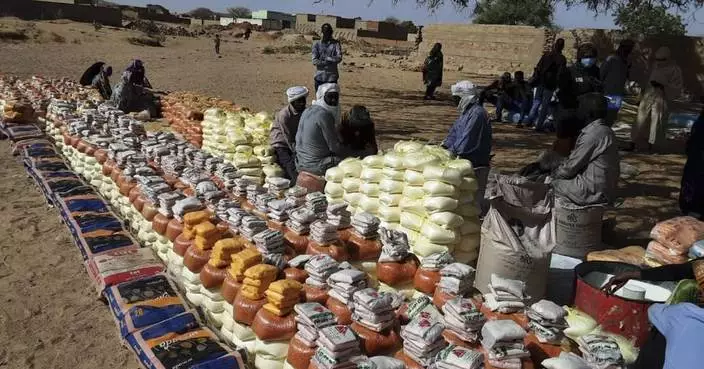Sudan's military rulers refused to agree on Monday to the Ethiopian proposal for a power-sharing agreement with the country's pro-democracy movement, a top general said, in comments that could worsen a volatile standoff with the protesters.
Ethiopia has led diplomatic efforts to bring the military and protest leaders back to the negotiating table, after a deadly crackdown by security forces killed at least 128 people across the country earlier this month, according to protest organizers. Sudanese authorities offered a lower toll of 61 deaths.
Protest leaders, represented by the Forces for Declaration of Freedom and Change, had accepted the Ethiopian initiative the day before. It centered on forming a transitional government — a so-called "sovereign council" — with a civilian majority to rule Sudan, over two months after the protesters forced the military to remove the autocrat Omar al-Bashir from power.
But on Monday, the powerful deputy head of the military council, Gen. Mohammed Hamdan Dagalo, said the mission of the Ethiopian envoy, Mahmoud Dirir, was to pave the way for resuming talks with the FDFC, "not to offer proposals for solutions."
"The mission of the Ethiopian mediator was limited to prepare the parties for negotiations. We did not agree on shares in the sovereign council. We do not accept prescriptions," he said.
Dagalo said the ruling military council did not oppose civilian participation in the future sovereign council — or that the FDFC might form the government. He added that the transitional legislative body "should be (formed) through elections."
In a press conference on Sunday, the military council had said the previous deals with the protest leaders were invalid, given the changes on the ground in Sudan since talks collapsed in May.
A spokesman for the council, Gen. Shams Eddin Kabashi, said: "The circumstances in which we reached such understandings ... are not the same."
Previously, both sides had agreed on an interim legislative body and Cabinet formed by the protesters. They had still not reached agreement on the extent of the military's role in the planned sovereign council, which would guide the nation throughout the three-year transition period, when security forces launched the deadly clampdown on June 3.
The movement has since tried different tactics — including a short-lived nationwide strike, and nighttime marches to keep up pressure on the military.
On Monday, police forces used tear gas to disperse dozens of protesters in the capital, Khartoum.
The clashes broke out in the district of Buri — a stronghold of the protest movement. Demonstrators hurled stones at police before fleeing inside the National Ribat University campus. An Associated Press photographer saw officers arresting a number of people, before taking them blindfolded into police trucks.
The FDFC had called on Sunday for trust-building measures from the military before resuming talks. These included a demand for an independent investigation into the violence on June 3. It had also demanded that the military-backed authorities restore the country's severed internet services.
On Monday, the United Nations' human rights chief said the military council had not responded to a request for cooperation with its office for investigating alleged human rights crimes, including the rape and sexual abuse of both women and men, in the deaths of protesters.
The U.N. High Commissioner for Human Rights Michelle Bachelet also urged authorities to "immediately" restore internet connections.
UNITED NATIONS (AP) — Nearly 282 million people in 59 countries suffered from acute hunger in 2023, with war-torn Gaza as the territory with the largest number of people facing famine, according to the Global Report on Food Crises released Wednesday.
The U.N. report said 24 million more people faced an acute lack of food than in 2022, due to the sharp deterioration in food security, especially in the Gaza Strip and Sudan. The number of nations with food crises that are monitored has also been expanded.
Máximo Torero, chief economist for the U.N.'s Food and Agriculture Organization, said 705,000 people in five countries are at Phase 5, the highest level, on a scale of hunger determined by international experts — the highest number since the global report began in 2016 and quadruple the number that year.
Over 80% of those facing imminent famine — 577,000 people — were in Gaza, he said. South Sudan, Burkina Faso, Somalia and Mali each host many thousands also facing catastrophic hunger.
According to the report’s future outlook, around 1.1 million people in Gaza, where the Israel-Hamas war is now in its seventh month, and 79,000 in South Sudan are projected to be in Phase 5 and facing famine by July.
It said conflict will also continue to drive food insecurity in Haiti, where gangs control large portions of the capital.
Additionally, while the El Nino phenomenon peaked in early 2024, “its full impact on food security – including flooding and poor rain in parts of east Africa and drought in southern Africa, especially Malawi, Zambia and Zimbabwe – are like to manifest throughout the year.”
U.N. Secretary-General Antonio Guterres called the report “a roll call of human failings,” and that “in a world of plenty, children are starving to death.”
“The conflicts erupting over the past 12 months compound a dire global situation,” he wrote in the report's foreword.
Guterres highlighted the conflict in the Gaza Strip, as the enclave holds the highest number of people facing catastrophic hunger. There is also the year-old conflict in Sudan, which has created the world's largest internal displacement crisis “with atrocious impacts on hunger and nutrition,” he added.
According to the report, over 36 million people in 39 countries and territories are facing an acute hunger emergency, a step below the famine level in Phase 4, with more than a third in Sudan and Afghanistan. It's an increase of a million people from 2022, the report said.
Arif Husain, the U.N. World Food Program’s chief economist, said every year since 2016 the numbers of people acutely food insecure have gone up, and they are now more than double the numbers before the COVID-19 pandemic.
While the report looks at 59 countries, he said the target is to get data from 73 countries where there are people who are acutely food insecure.
Secretary-General Guterres called for an urgent response to the report’s findings that addresses the underlying causes of acute hunger and malnutrition while transforming the systems that supply food. Funding is also not keeping pace with the needs, he stressed.
“We must have the funding, and we also must have the access,” WFP’s Husain said, stressing that both “go hand-in-hand” and are essential to tackle acute food insecurity.
The report is the flagship publication of the Food Security Information Network and is based on a collaboration of 16 partners including U.N. agencies, regional and multinational bodies, the European Union, the U.S. Agency for International Development, technical organizations and others.
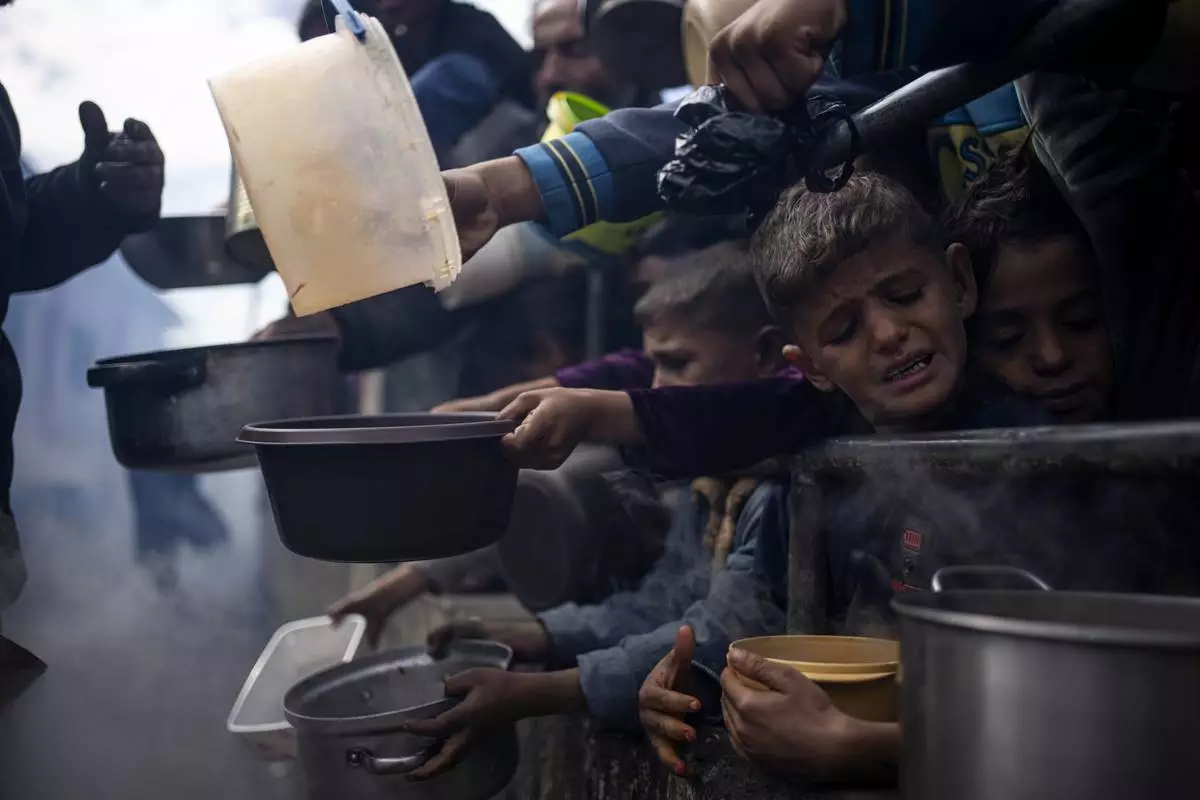
FILE - Palestinians line up for a meal in Rafah, Gaza Strip, Friday, Feb. 16, 2024. According to the Global Report on Food Crises released Wednesday, April 24, nearly 282 million people in 59 countries suffered from acute hunger in 2023, with war-torn Gaza the territory with the largest number of people facing famine. (AP Photo/Fatima Shbair, File)




